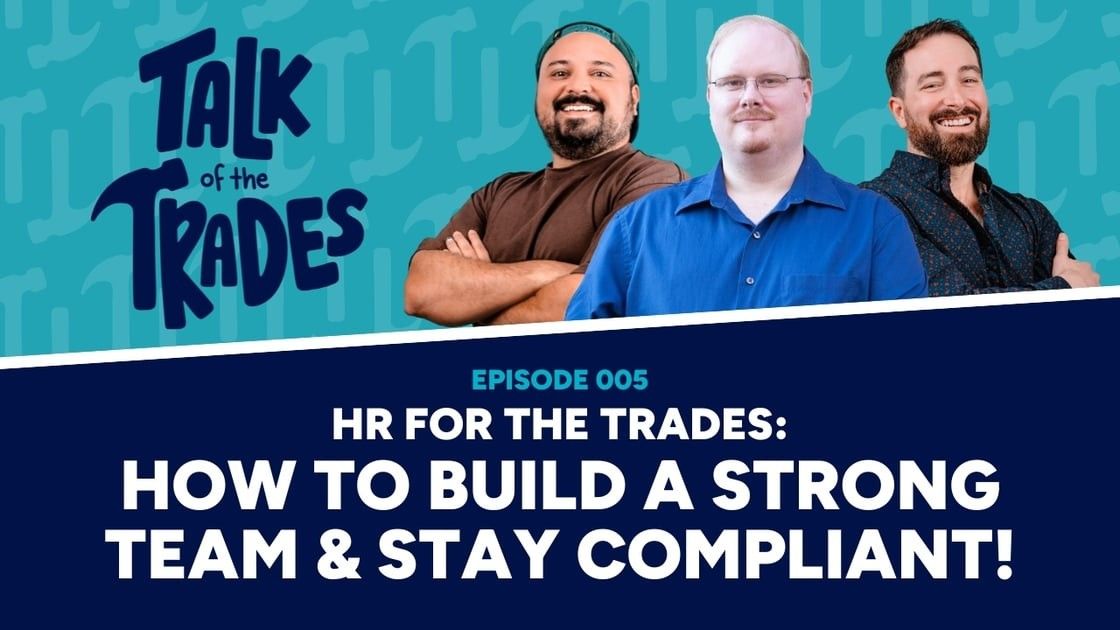Employees vs. Independent Contractors in the Trades
2 April 2025
Tempted to save time and money by hiring technicians as independent contractors rather than employees? Think again.
The U.S. Department of Labor (DOL) has been cracking down on businesses who misclassify workers – that is, who treat them like independent contractors when they should really be W-2 employees.
In our opinion, the Trades should almost exclusively hire W-2 employees. This isn't just to stay out of trouble with the government, but because it makes for good business. Let’s unpack this a little bit.
Why are companies tempted to hire contractors in the first place?
From the employer standpoint, you can save on payroll taxes, benefits, overtime pay, etc. And some technicians want the flexibility (and tax deductions) they can get as a contractor rather than an employee. Seems like a win-win!
Independent contractors and employees aren’t interchangeable
In reality, you can’t “contract out” the primary functions of your company. In their classifications, the DOL looks at things like how much control you have over the worker, whether their role is core to your business, and how permanent their gig is. For example, if you run an HVAC company, you can’t pretend your long-term HVAC techs are independent contractors. Now, you could hire a contractor to do roof repair for a one-off job that needs some extra help (assuming you’re not usually in the roofing business), but that’s obviously not the same.
So you shouldn’t classify key employees as contractors, because it's pretty hard to pretend they're interchangeable based on the government's definitions. But we have other reasons you should hire W-2 employees – like when it comes to representing your Brand.
Representing the Brand
When you outfit an employee with your company logo and send them out in a company truck to do a job, you want to have some legal control over how they behave. Employees are subject to your company policies and rules, and you can hold them accountable. Independent contractors? Not so much. And it’s your Brand on the line if they show up at a jobsite drunk, or get a speeding ticket, but you don’t have the authority to enforce the rules the same way for a contractor.
Okay, so what if the independent contractor uses his own brand and truck? Now he's not visibly representing your brand, but the customer will be mighty confused about why they invested in calling YOU and YOUR BRAND, just to have someone else show up at the door, and now you’ve diluted your Brand even more.
Hiring W-2 employees gives you stability and clarity. You can train them your way, build a loyal team, instill in them your company values, and avoid the legal gray zone.
The risk of misclassifying employees
Let’s not downplay the risks if the government figures out you’ve designated someone as an independent contractor when they should instead be an employee.
The DOL’s got a six-factor test to review contractor status: control, opportunity for profit or loss, investment in equipment, skill level, permanence, and how integral the work is to your core business. If your contractor doesn’t pass every level of this test, you’re not just looking at back wages or overtime pay. You could lose out on tax breaks, face fines, and even damage your reputation and Brand.
So we recommend you play it safe. Hire employees as employees. Sure, onboarding takes a bit more effort and it might cost you a little more, but it’ll pay off in loyalty and fewer legal landmines.
For more info on the distinction and how to ensure contractors actually qualify as contractors, check out this HR article: https://hrdailyadvisor.blr.com/2025/03/25/keeping-independent-contractor-relationships-independent/
And for any other help, reach out to us at The Big Picture Consulting!

Reasonable Accommodations in the workplace are no joke - you can get into serious legal trouble if you don't comply with the ADA. Yet here's a case study on a company who terminated someone for an issue directly related to their disability and was not held legally liable. Check out the details of how this might apply to your business.









